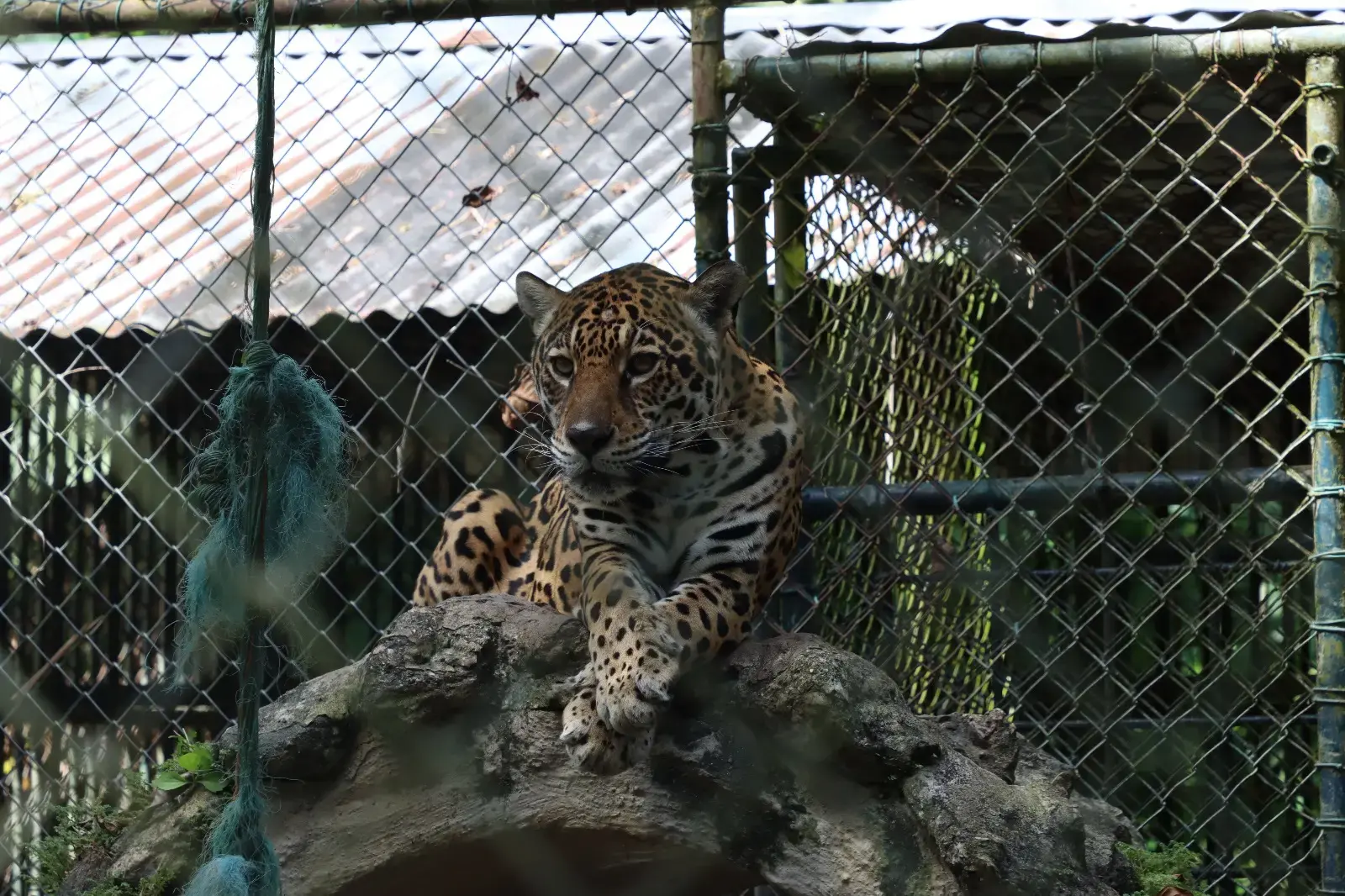This story excerpt was translated from German. To read the original story in full, scroll down to the bottom of this page to access the story on ZEIT.
Illegal trade of endangered species is one of the most lucrative crimes. Chinese traders smuggle paws, fangs and organs of jaguars from the Amazon forest on a large scale.
One afternoon in February, a pile of skeletal parts lies on the table in banquet hall number three of the Royal Torarica Hotel. The pale tubular bones, skulls and dentures are from jaguars, pumas and umbilical pigs, and now they are spread out in front of police officers, customs investigators and military representatives in this luxury hotel in Suriname. Behind them stands a bearded, serious-looking American in his late sixties. Pepper Trail, a man with an unusual name and an unusual job. A trained biologist, he works as a so-called forensic animal expert.
He is actually employed by the U.S. Fish and Wildlife Crime Lab in Oregon, where he has helped solve thousands of wildlife smuggling cases. But today he has traveled to the small South American state on the Caribbean coast. Trail knows his way around the jungles of Suriname. As a young man, he spent the first half of the 1980s in the rainforests there researching a rare bird species for his doctoral thesis. Four decades later, the government of Suriname has asked him to train local investigators. They are to learn how to identify jaguar carcass parts.

The officials at the hotel walk thoughtfully around the table, palpating the bones, cradling the skulls in their hands. The jaguar skull, Trail explains, can be identified by the large recess for the gill muscles. These are particularly strong in the animal. A jaguar can easily bite through a turtle shell or the skull of its prey. It can reach a length of 1.85 meters and a weight of 160 kilograms.


But now the jaguar, the king of all predators in the Amazon forest, has become its own prey in Suriname. From year to year, there is increasing evidence that the fangs, bones and claws of the endangered big cats are turning up in China and other East Asian countries such as Vietnam and Thailand. There, they are considered luxury products or medicine. Recently, the British conservation organization World Animal Protection discovered that some smugglers have been boiling whole jaguar cadas for days in large cauldrons to make a gray, sticky paste for rheumatism and manhood. Retail price in China: $785 to $3,000 for a small bottle.








